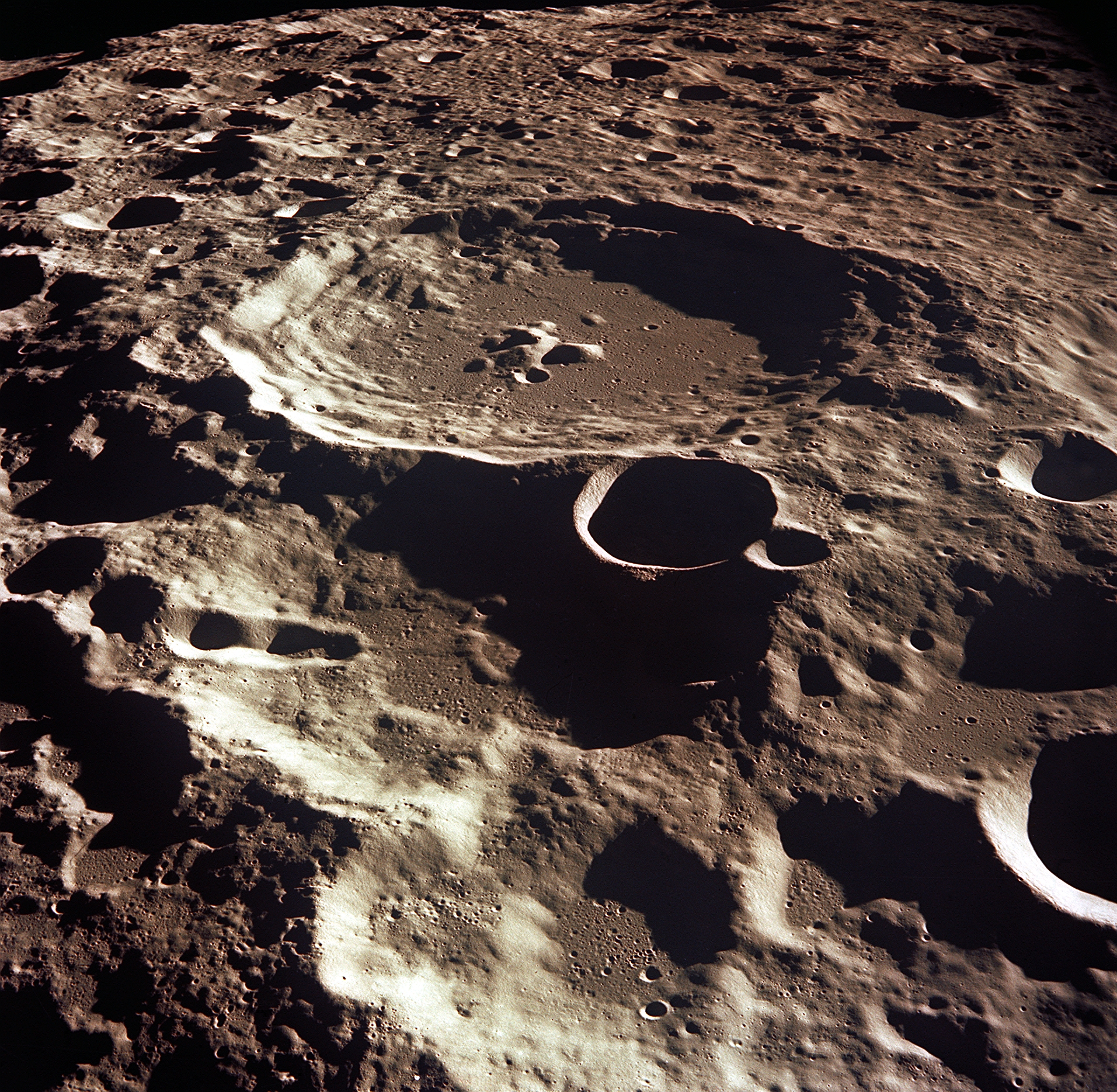|
|
 Fran Ridge |
|
|
 Fran Ridge |
ANOTHER ANOMALY NEAR DAEDALUS IN
AS-44-6609
Far Side Section 120
|
20160426; updated 20181028
The alleged anomaly in a NASA Apollo image had been noted by Mike Garuto, one of our Lunascan members. He remarked that it seemed to be interesting and on the surface, and he had hopes we could open the file and zoom in on the small boxed section in the lower left. Rob Duvall noticed that the "star" was circular, and within that area all of the features were gone. It looked like it had been photo-shopped. 2018-10-23 19:32 61K  AS11-44-6609 ASA Photo ID: AS11-44-6609 File Name: 10075255.jpg Film Type: 70mm Date Taken: 07/16/69 Title: Oblique view of lunar farside photographed from orbit looking southwest Description: An oblique view of the lunar farside photographed from the Apollo 11 spacecraft in lunar orbit, looking southwest. The large crater in the center of the picture is International Astronomical Union crater (IAU) no. 308, which is located at 179 degrees east longitude and 5.5 degrees south latitude. IAU crater no. 308 has a diameter of about 50 statute miles. The ruggted terrain seen here is typical of the farside of the Moon. The image looked familiar, but I was initially unable to place it, except that I was pretty sure it wasn't from the Near Side. Mike had thought that it was an Apollo 17 image, so I began looking at theApollo 17 film magazines, both the 70 mm Hasselblad and the (Mapping) Metric Camera. There were 23 film magazines of 3581 images! When nothing turned up I began some wild Google searches and looked at a lot of images from Apollo 17. Nothing. But once I tried other search clues the image finally showed, but it was listed as an Apollo 11 photograph. Once I had the correct mission I went into the Hasselblad and Metric Camera images and looked at 9 magazines of 1408 images. I was able to find the exact image. There were actually two, and the first one I put up on the Lunascan email list was the incorrect one. AS11-44-6611 had been close, but the bottom section did not contain the area of the anomaly reported. The correct image was AS11-44-6609. It had been interesting that this site is also VERY close to the proposed location of a 2001 Space Odyssey-type lunar base where no radio signals from Earth can contaminate signals from outer space. The Lunascan Project database had shown that the huge Copernian-type crater to the north is Daedalus and is in Ridge Section 120 on the lunar Far Side which we completed on April 5th, 2013 http://www.lunascan.com/fsregions/0120dir.htm Our thanks to the team, especially Ananda Sirisina, Mike Garuto, Rob Duvall & Ned Haskin. Daedalus is a prominent crater, 93 km
wide and 3 km deep, located near the center
of the Far Side of the Moon. It is
said to be the largest crater on the Moon.
famous and important for other reasons as
you will soon see. The inner wall is
terraced, and there is a cluster of central
peaks on the relatively flat floor. Because
its location is shielded from radio
emissions from the Earth it has been
proposed as the site of a future giant radio
telescope, which would be scooped out of the
crater itself, much like the Arecibo radio
telescope, but on a vastly larger scale.
It has also been postulated that
"somebody else" could be using this central
Far Side location as a base. In contemporary
sources it was called "Crater 308" (this was
a temporary IAU designation that preceded
the establishment of far-side lunar
nomenclature).
Blow-ups of the area of the anomaly in this discussion are in the third link below. References:
What we need to do now is search for these items on the mucher resolution LRO images at around 5.5 S 179 E Francis Ridge The Lunascan Project |